Category: 2018
Podcast: Command Line Heroes

The podcast Command Line Heroes has come to an end after nine seasons and I would like to highlight it as one of the best technology-related podcasts around.
Over time the podcast has broadened the scope of the subjects covered but it has maintained its high production quality and has always been an interesting listen (with excellent transcripts if you prefer to read). It also led me to read the book Coders by Clive Thompson which is definitely worth picking up if you are a coder, want to be one or work with them.
Despite the nature of the subjects being covered it always comes across as accessible by anyone, regardless of whether they already consider themselves “tech” or not.
Here is how the seasons break down and you can pick and choose where you start as each season is self-contained:
• Season 1: Bill vs Steve, the rise of Linux, Agile, DevOps, containers, cloud
• Season 2: gaming, programming languages, contributing to open source, failure, DevSecOps, big data, NASA
• Season 3: Programming languages – Python, JavaScript, BASIC, Perl, the Bash shell, C, UNIX
• Season 4: All about hardware
• Season 5: The job of being a coder (mini season)
• Season 6: The unknown inventors
• Season 7: 1995 – the year it all changed
• Season 8: Robots, from several angles
• Season 9: Security – viruses, worms, trojans, logic bombs, botnets and more
Film review: Heat

I remember when this first came out in 1995 all the interest was related to the fact that this was the first time that Robert De Niro and Al Pacino had actually spent screen time together. Previously, in The Godfather Part 2 they had been in the same film but not at the same time. That momentous occasion seemed to overshadow the whole film.
I watched the film again recently – it is a masterpiece. As action films go this is intelligent and vicious. A great story, a magnificent cast. One of the best examples of the genre.
Setting up Wireguard VPN so that it can be used with an iPhone or iPad

Note: This is correct as of December 2018 and should be seen only as an experiment because Wireguard is not yet production ready (pre version 1.0).
I have heard a lot about Wireguard VPN recently because I listen to some Linux-related podcasts and they were being very positive so I thought I’d try it out.
My aim was to set up a Wireguard VPN server on Amazon Web Services (AWS) and configure it to work on an iPhone (currently running iOS 12).
To do this I found very good two articles online and used bits from both. Combining those with installing a beta version of the Wireguard iOS app got me up and running.
The two articles I used were:
Article 1: Installing WireGuard on Amazon Lightsail
Article 2: Wireguard VPN: Typical Setup
I suggest reading both in full before you start. There are many other articles out there that also explain how to set up Wireguard, so try them if these particular articles are not to your taste.
Setting up a virtual server on AWS
Article 1 is very good on this. It explains how to set up a virtual server on AWS, so follow the steps mentioned there.
I made a couple of changes. Firstly, I chose a different operating system. My choice was Ubuntu LTS 16.04. I did this for two reasons – I am familiar with Ubuntu and Article 2 also uses Ubuntu in its example.
The second change was that I used a different UDP port. Neither article specified a particular port number that should be used so I went with port 53133, which was mentioned here.
I mention the UDP port because it is something that has to be specified when setting up the virtual server on AWS.
Note about the user on the AWS Ubuntu server
When you log onto the virtual server, you do so as the user “ubuntu”. There is no password for this user. You must specify sudo otherwise you will get permission denied messages when running commands or modifying configuration files.
Setting up Wireguard on the virtual server
I used Article 2 for most configuration steps (eg installing Wireguard, generating server and client keys, generating server and client configs, firewall, DNS) and carried out the steps in the same order.
Make sure you read what you are copying / pasting from the article(s) as you have to insert your own specific information in some places (key details, IP address, UDP port number).
The only change I made was when naming the client config. Instead of calling it wg0-client.conf, I chose to call it simply client1. I thought it might be easier to follow later if I want to configure more clients so that they can connect to the server.
In Article 2 I finished with part 7 (configuring DNS). This is the last stage of setting up the server.
Part 8 is about setting up a client, but it is referring to a Linux machine. I want to get it working on iOS so there are some different steps to take.
Installing the Wireguard iOS app
The Wireguard iOS app is still in beta so you have to use Apple’s Testflight app to install it. First install Testflight and then see the details here.
This will change in future once the app is out of beta, when you will be able to install it in the normal way.
Setting up the Wireguard iOS app with your configuration details
For this, I return to Article 1. Go to the “Client setup” section.
Ignore the fact that it talks about an Android app.
At this point we have already set up the client config file on the server so it is not necessary to do that again.
The bit that you need describes how to create a QR code. Run the “qrencode” command, ensuring that the client name you use matches the name of the client config file on the server (mine is called client1).
Note that qrencode was not installed by default on Ubuntu 16.04 but was quickly installed with apt-get.
This will actually display a QR code in the terminal window.
In the iOS app choose the option to create a Wireguard tunnel from a QR code, give the app permission to use the phone’s camera if necessary and then point the phone at the QR code on the screen.
An entry for your Wireguard server will appear in the app – just switch it on.
I’d recommend that you do the checks to make sure that your phone is routing through the VPN server by testing your IP address and DNS queries.
Mini review: “A Logic Named Joe” by Murray Leinster (From “Machines That Think”, an early 1980s science fiction short story anthology)
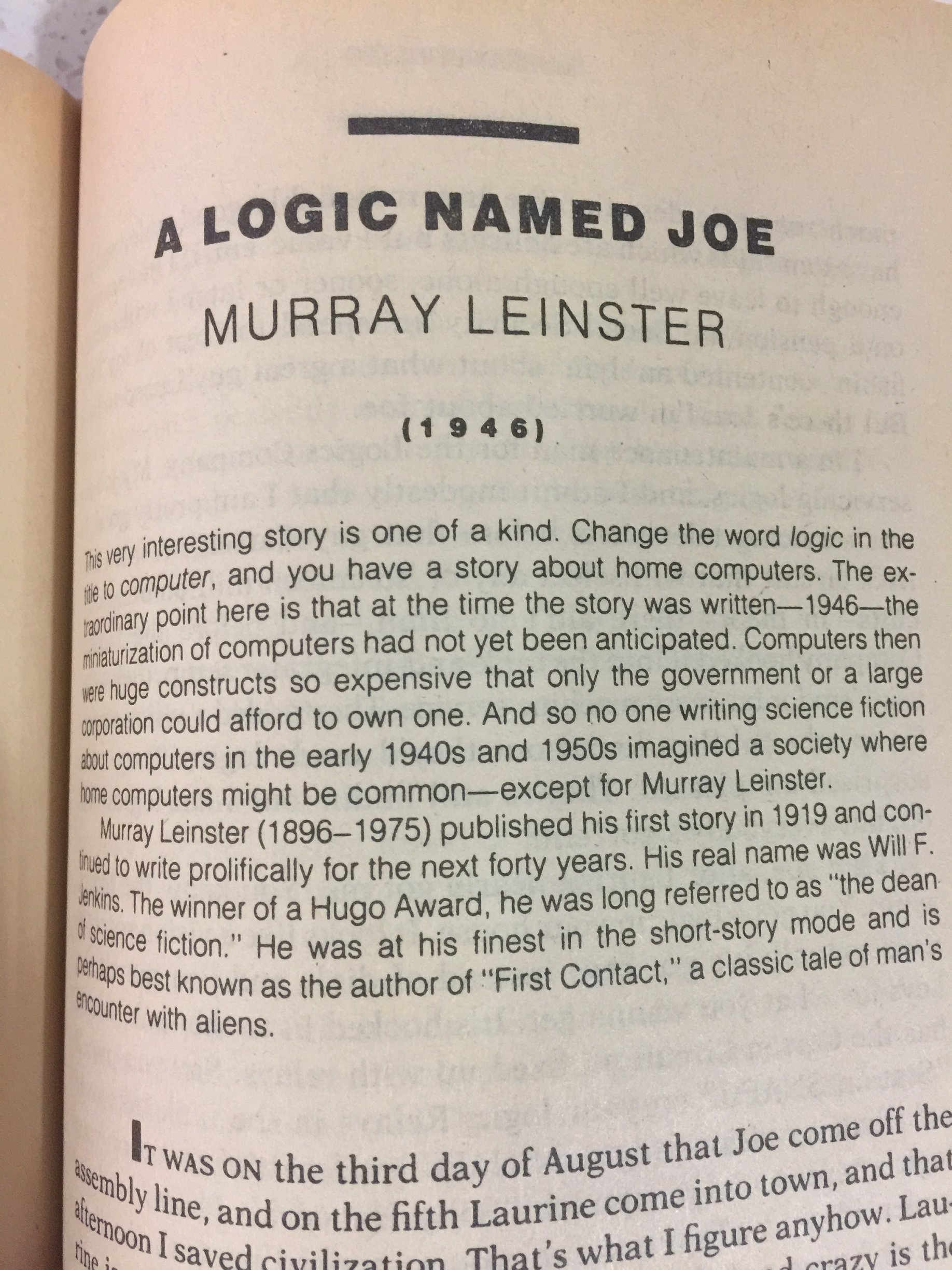
For a while now I have been reading more about the history of computing (in the USA and in particular Silicon Valley). It started with the sublime article “The Tinkerings of Robert Noyce” by Tom Wolfe in Esquire magazine and followed by the revelatory – to me at least – Rolling Stone article “SPACEWAR” by Stewart Brand. Next up was the wonderful book “Troublemakers” which covered Silicon Valley from 1969 to 1984.
The reason I’m interested in this is because the more I find out about the history of computing, the more I realise that the world that we live in today was conceived several decades ago. Ideas that we think of as modern originated back then.
What they predicted back then, we are enmeshed in today.
The story “A Logic Named Joe” features in “Machines That Think”, a science fiction short story anthology from 1984.
The story is just 17 pages long but I was astounded. This story from 72 years ago appears to predict the internet, artificial intelligence and some of the less salubrious social consequences of having the world’s information at our fingertips.
The introduction talks about the importance of the story due to the way it predicted widespread ownership of computers, made possible by the reduction in size and cost of the machines. In fact, the world the story was describing had not yet arrived in 1984 – it was too early to comment on the story and truly understand how predictive it would become.
You can read the story in full and listen to the excellent radio adaptation – both highly recommended.
Podcast: Intrigue: The Ratline (BBC Radio 4)

I really enjoyed the first series of the Intrigue podcast from last year called “Murder in the Lucky Holiday Hotel”, which describes itself as “A true story of death, sex and elite politics in China”. It was the first time that I had come across a BBC podcast that was not just a feed of previously broadcast programmes but something that showed that the BBC were starting to recognise the value of podcasting as an alternative way of delivering high quality stories to their audience. I think that the first season of the Serial podcast had inspired them to dip their toe in the water…
The BBC’s description is as follows: “Each series of Intrigue tells the story of an unexpected death which pulls back the curtain on how the world works” and I think that is a very good summation.
One of the benefits of podcasts is that if you leave yourself subscribed to the feed then you can discover new content as it became available. That’s what happened here – one day a trailer for the second series, The Ratline, appeared out of the blue.
The programme is hosted by Philippe Sands, a renowned human rights lawyer who is investigating the background to what happened to his family in a Nazi concentration camp.
He follows the story of one high-ranking Nazi who was never tried for his crimes and over time has built up a remarkable relationship with the man’s son. What he discovers is a truly tangled web, and although it can be difficult to comprehend all the connections at times, he persuasively paints a picture of a time after World War 2 where shifting priorities bring together nascent intelligence agencies, war criminals and religious leaders.
Fascinating stuff.
• BBC: Direct download of both series of the Intrigue podcast
The Art of “Dune” by Frank Herbert
One thing I love about reading old books is the possibility of searching for alternative book covers that have appeared over the years. They often show a lot of imagination and artistic talent – and different visions of the story you are about to read. I will often search out second hand copies of a book rather than the latest design if something really catches my eye and the price is right.
Science fiction is a particularly rich source of artwork . Here are a few of my favourite designs for a book that I have just read for the first time – “Dune” by Frank Herbert.
There are a lot more too…
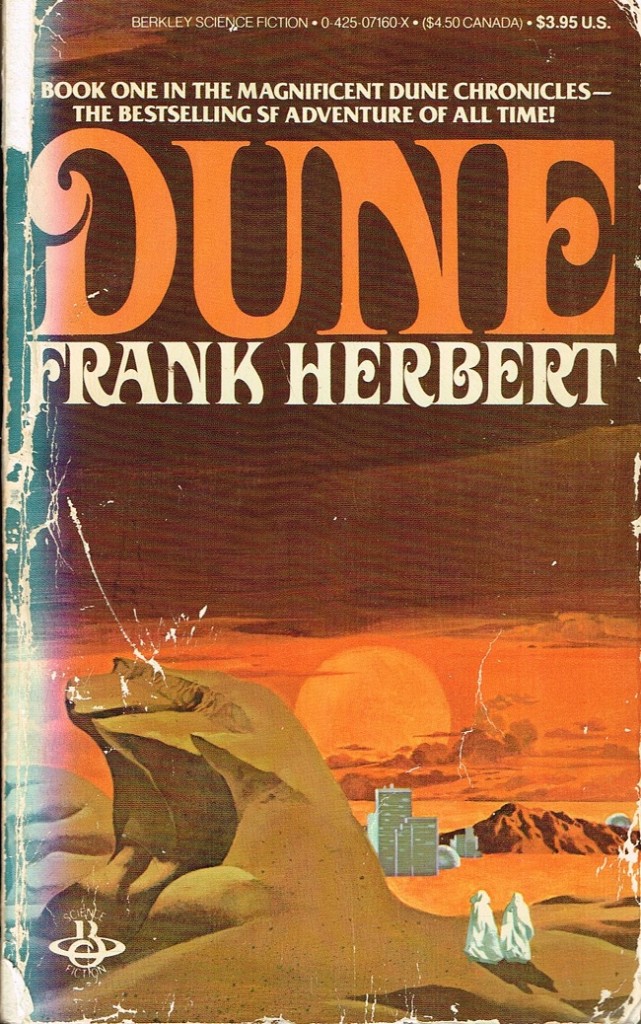
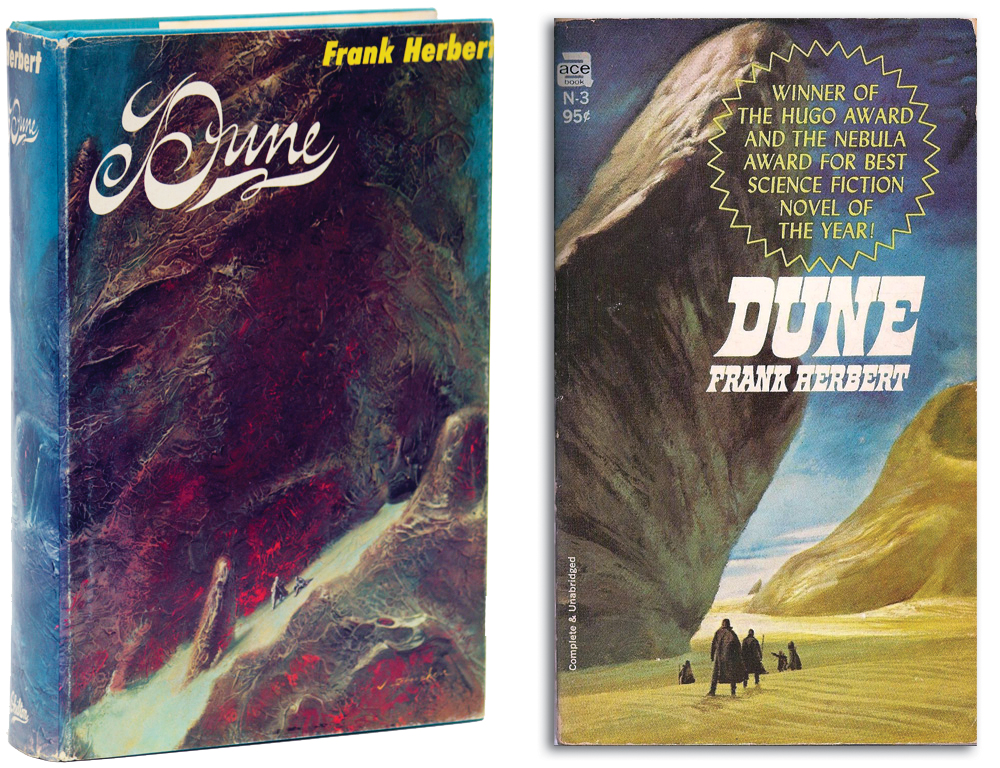
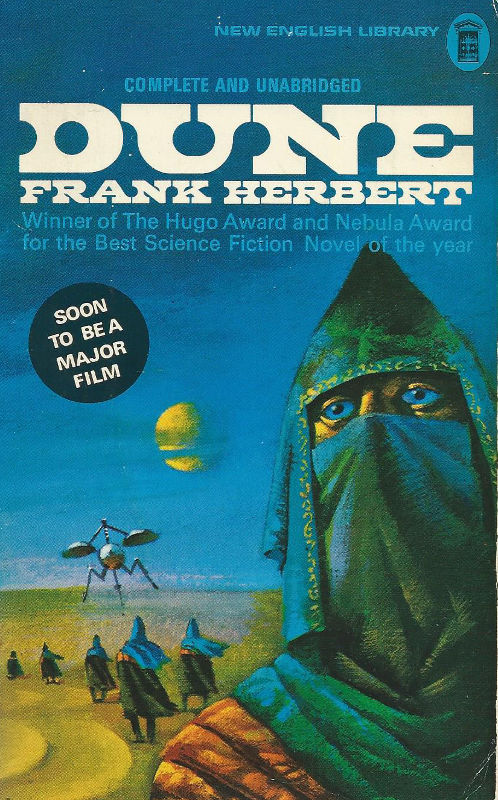
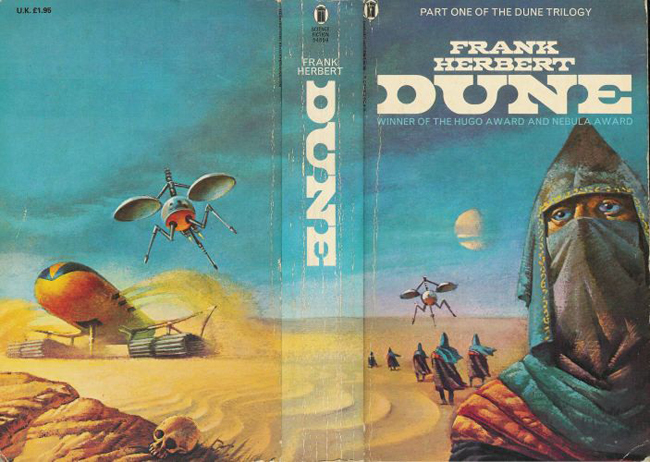
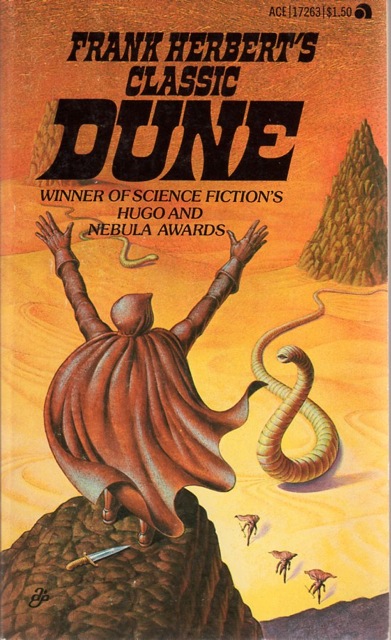

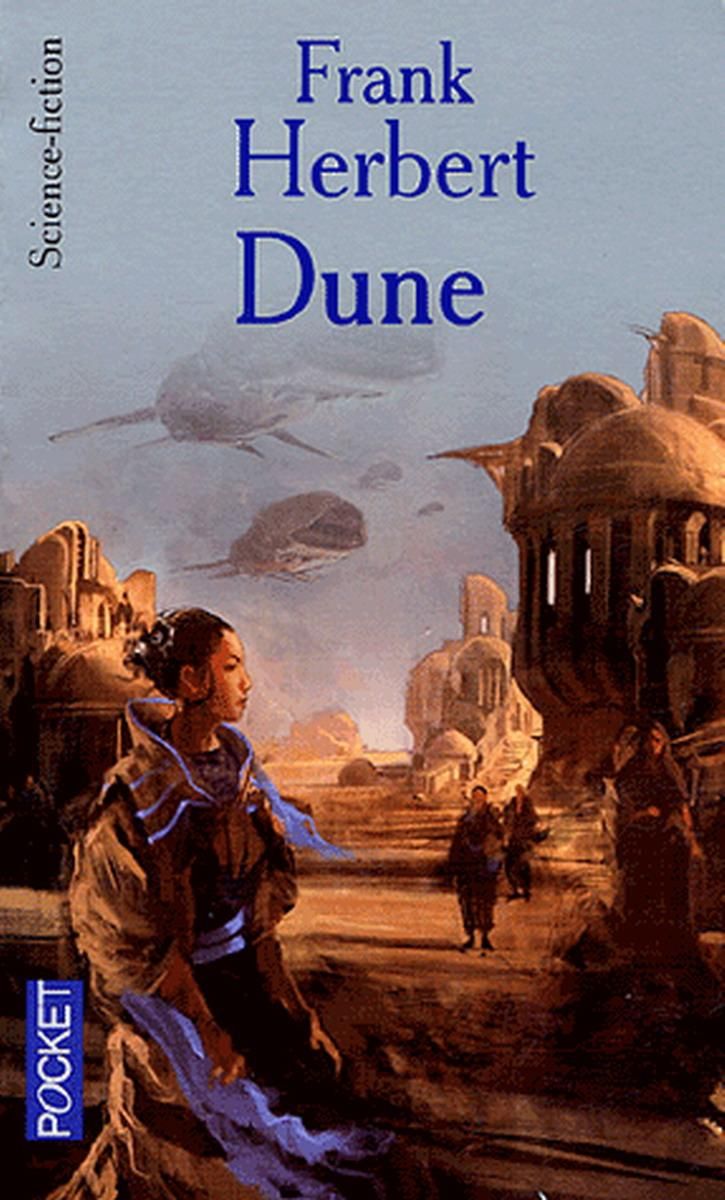
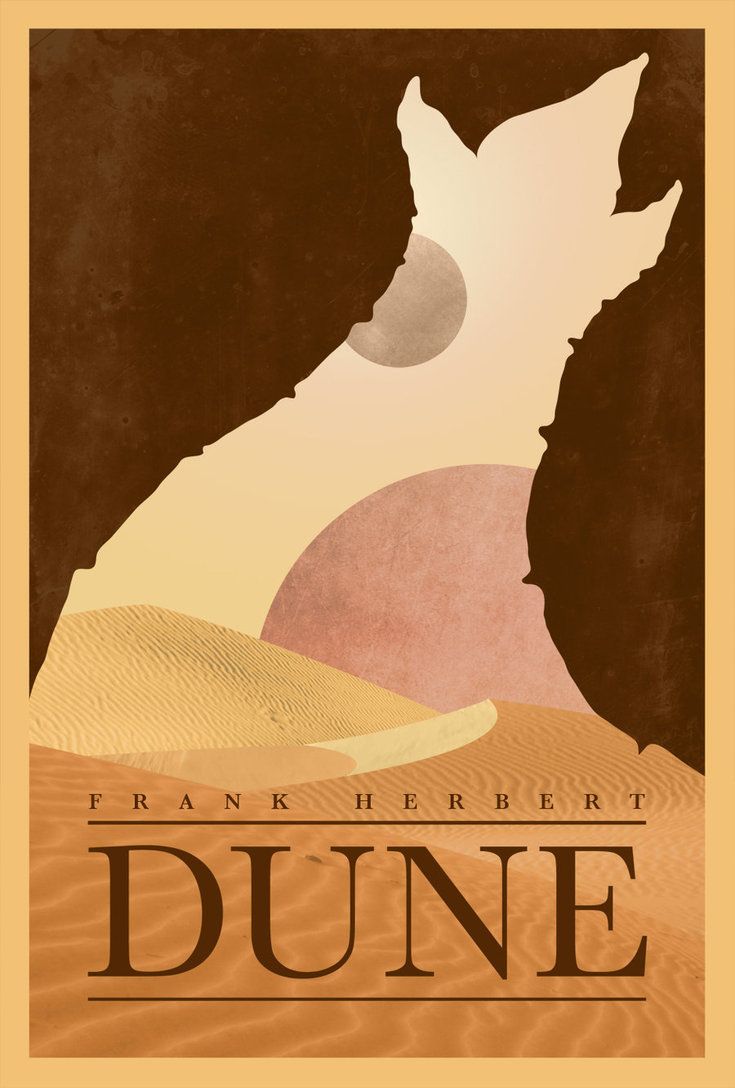
Mini review: “Dune” by Frank Herbert (audiobook version)

This is a book that I’ve been meaning to read for a long time, especially the audiobook version which was supposed to be very good.
Dune is regarded as one of the all-time classic science fiction novels, first published in 1965, and supposedly the biggest selling sci-fi book of all time.
The Atreides family is given responsibility for the planet Arrakis by the Emperor of the universe. It is an inhospitable desert planet where water is very scarce, but it is the only place that produces the spice Melange, a drug that is prized but addictive. There is huge rivalry that has extended over generations between House Atreides and the previous rulers of the planet, House Harkonnen, who are plotting to regain control.
This book truly does create a whole world – ecology, politics, religion. I can imagine a story of that ambition being written today (I suspect that Game of Thrones would be a modern equivalent, although I haven’t read it) but the idea that it was written over 50 years ago is just astounding. It really has stood the test of time. I enjoyed the book a lot, but the impact is amplified by a greater feeling of respect. Respect for the scale of the story, the scale of the imagination.
The production quality of the audiobook version is very high. I had heard the name of the narrator, Simon Vance, before but had never listened to one of his books. He does an astounding job, especially given the broad scope of characters, and is totally consistent all the way through. A real performance.
Then… something different. Throughout the audiobook are scenes that are acted out by a cast of actors. It adds a kind of cinematic edge and for me it worked, but it is a bit bizarre. I would have thought that you either go for a single narrator or you go for a full cast production.
I also bought an second-hand copy of the book so that I could read the appendices, which add additional depth and background – these are missing from the audiobook version.
Mini review: “Harry Potter and the Philosopher’s Stone” by J.K. Rowling (audiobook version)

Over the summer the family went to the Harry Potter Studio Tour, located north of London. It was very good, although eye-blisteringly expensive.[1]
After the fact it occurred to me that I had never actually read any of the Harry Potter books, so I started at the very beginning with the audiobook of Harry Potter and the Philosopher’s Stone
It’s a wonderful little story, perfectly performed by Stephen Fry.
[1] There was something called butterbeer which should be avoided at all costs as it is one of the rankest concoctions known to man – just buy the cup and pour away the vile contents before it gets close to your nostrils, let alone your tastebuds.
Mini review: “The Ipcress File” by Len Deighton (audiobook version)

I have read many of Len Deighton’s books and enjoyed the audiobook versions that have been released over the course of the last four years but I had never read his first book, The Ipcress File, until now.
I’ve seen the film, listened to the BBC radio adaptation and worked my way through several of the other “Spy with no name” / ”Harry Palmer” books, so I thought it was about time I corrected this major oversight. Can you really be called a fan of an author if you haven’t read their first big hit?
The plot deals with our spy trying to secure the release of a scientist who was recently kidnapped – one of several to have gone missing.
The book is far from perfect. The story gets confusing at some points (something that can happen when the author is trying to portray the confusion of the character himself) and seems to drag at some points too, although it generally rattles along at a good pace. It also relies a lot on a “catch up” section where the spy has to explain a number of things to a colleague towards the end of the book.
Despite all of that, the book is a lot of fun to read. You get a real sense of the 1960’s London vibe and some excellent dry humour. I’ve always loved the quality of dialogue between characters in Deighton books and he really nails it here.
The narration is well done. If you have heard any of the other audiobooks in the “Harry Palmer” or the “Bernard Samson” series then you know what to expect – it is the same narrator. The book mentions the character’s northern English roots on occasion, so it is a bit of a shame that we basically get a copy of Michael Caine’s accent. In the radio adaptation the character is played by the Liverpudlian Ian Hart. It would have been more authentic to keep that but the general public do associate dear old Maurice Joseph Micklewhite Jr with the role.
Overall I prefer the Bernard Samson novels over these “Spy with no name” / ”Harry Palmer” books, but the Ipcress File is probably the best of this series. I found it to be a perfect summer read.
• Spare Cycles: Len Deighton books
• Spare Cycles: Mini review: “Horse Under Water” by Len Deighton (audiobook version)
• Spare Cycles: Film: Funeral in Berlin
• Spare Cycles: Mini review: “Billion Dollar Brain” by Len Deighton
• Spare Cycles: Mini review: “Berlin Game” by Len Deighton (audiobook version)
• Spare Cycles: Mini review: “Mexico Set” by Len Deighton (audiobook version)
• Spare Cycles: Mini review: “London Match” by Len Deighton (audiobook version)
• Spare Cycles: Mini review: “Spy Hook” by Len Deighton (audiobook version)
• Spare Cycles: Mini review: “Spy Line” by Len Deighton (audiobook version)
• Spare Cycles: Mini review: “Spy Sinker” by Len Deighton (audiobook version)
• Spare Cycles: Mini review: “Winter: A Berlin Family 1899-1945” by Len Deighton (audiobook version)
Radio: “The Ipcress File” by Len Deighton (BBC Radio 4 adaptation)

I have to admit straight off that I’ve never actually read The Ipcress File, which is strange because I’ve now read a lot of Len Deighton’s other books. It was his first book, a big hit that is said to have helped redefine thriller writing in the 1960s. It is a big omission given that I have read other books in Deighton’s “unnamed spy” series such as Horse Under Water, Funeral in Berlin and Billion-Dollar Brain.
I think I have been put off by the film version of the Ipcress File which got a bit too psychedelic in places for my taste.
This BBC Radio 4 adaptation from 2004 is distinctly different to the film so I assume that it is much truer to the overall plot of the book. The casting of Liverpudlian Ian Hart is more authentic to the main character’s supposed birthplace of Lancashire than cockney Londoner Michael Caine in the film.
It is 1 1/2 hours long so there is room for the story to breathe and it is very well done. Highly recommended.
One of these days I’ll read the book…
• Spare Cycles: Len Deighton books
• Spare Cycles: Mini review: “Horse Under Water” by Len Deighton (audiobook version)
• Spare Cycles: Film: Funeral in Berlin
• Spare Cycles: Mini review: “Billion Dollar Brain” by Len Deighton
• Spare Cycles: Mini review: “Winter: A Berlin Family 1899-1945” by Len Deighton (audiobook version)